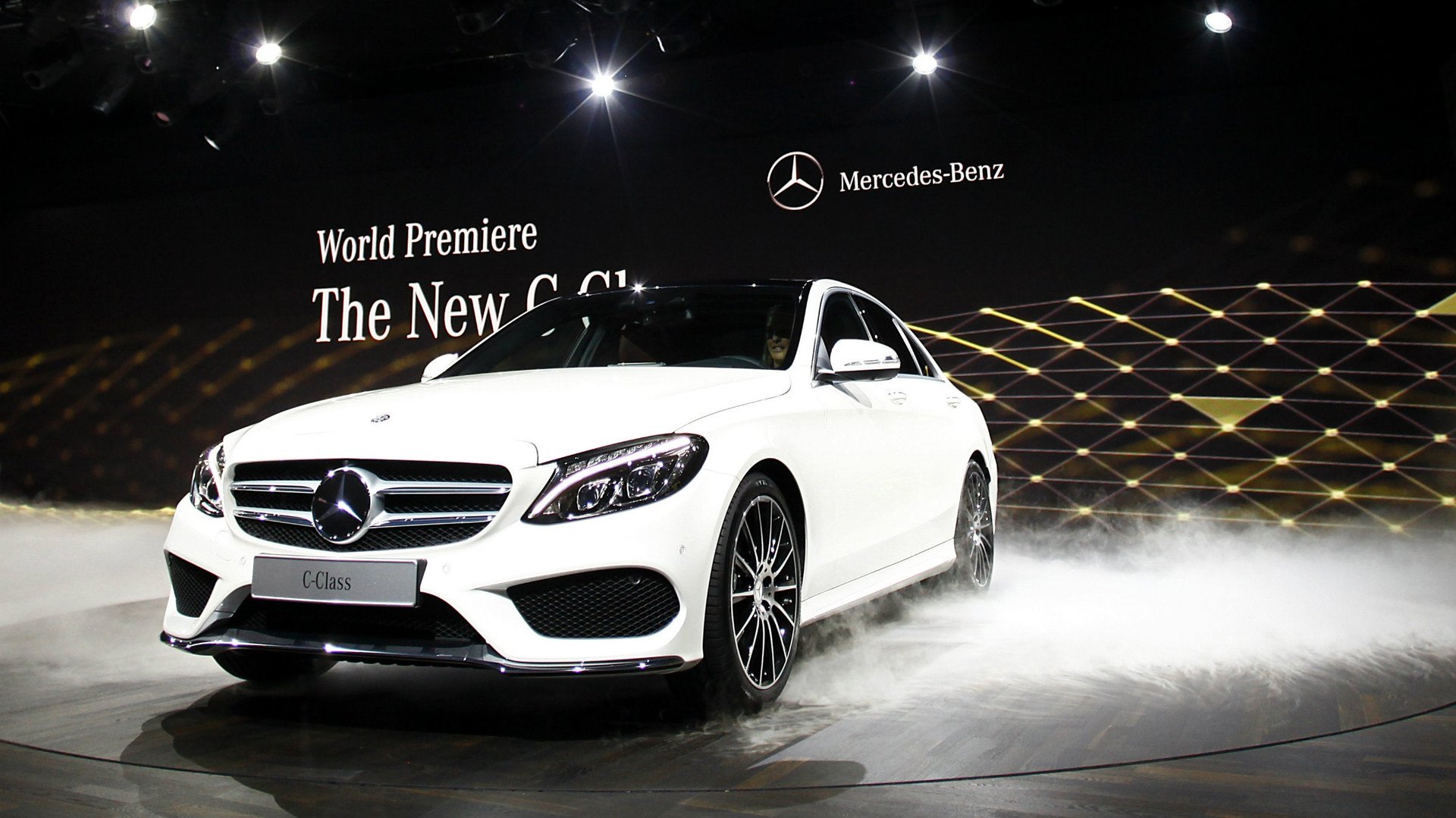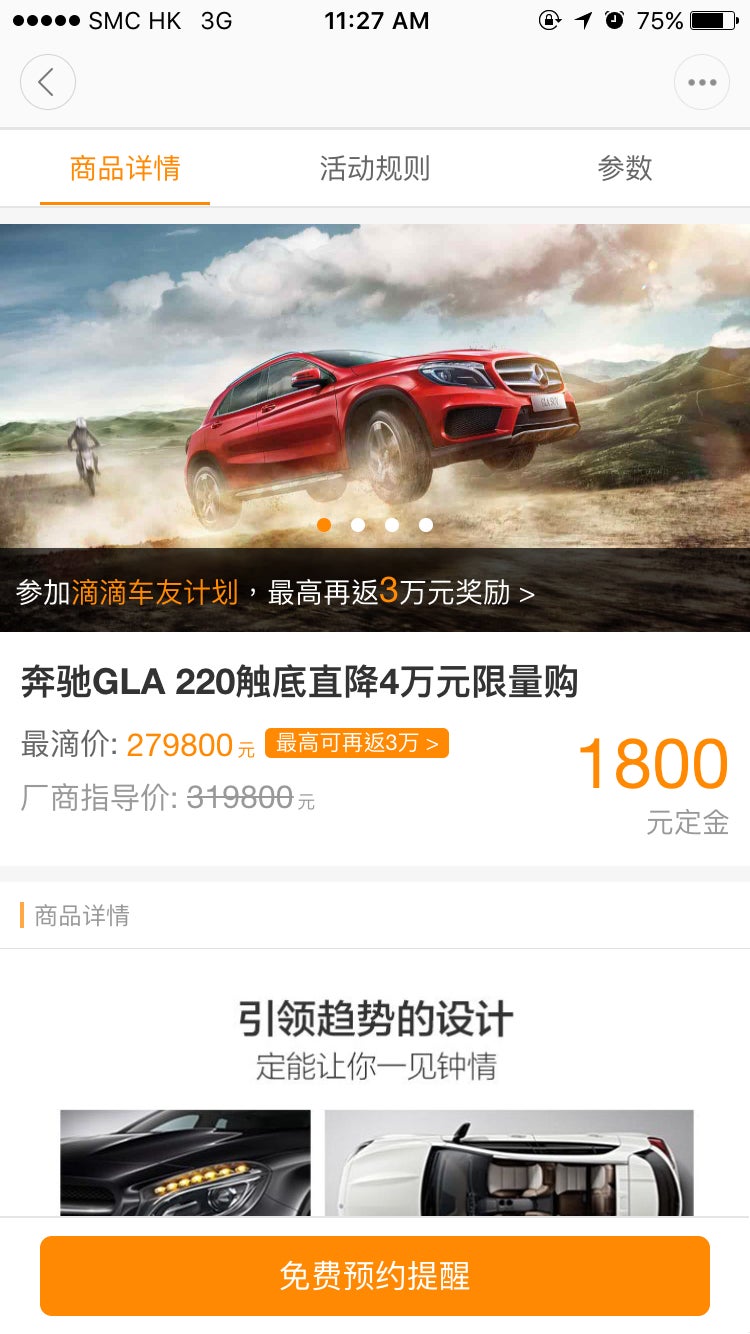Didi Kuaidi wants to use its ride-sharing app to sell customers a Mercedes
Didi Kuaidi, China’s version of Uber, is getting into the car sales business.


Didi Kuaidi, China’s version of Uber, is getting into the car sales business.
Starting Dec. 12 (link in Chinese), Didi’s 100 million users can test-drive a Toyota or Mercedes through Didi’s app, then get a 40,000 yuan ($6,200) discount if they buy a car at a nearby dealer. Initially Didi aims to sell 100 of each car brand.
Selling autos in China remains a fragmented business (pdf), even though the nation is the world’s biggest car-buying market. Being a large car dealer doesn’t confer the same benefits as in other markets, thanks in part to more competition for after-sales services and the government’s antimonopoly settlements (paywall) over the prices of foreign cars and spare parts.
Test-drives will use a similar system to Didi’s normal ride-hailing app. Instead of test-driving a vehicle at a car dealer’s showroom, Didi customers who want to buy a certain car will connect with a nearby car owner through a special section of Didi’s app.
The owner will deliver the car to the potential buyer, and let them take a test-drive of 30 minutes or 10 kilometers. Didi has added a new wrinkle here—potential buyers will be charged a fee of 28 yuan to 48 yuan, depending on the vehicle, which is paid to the driver. Car owners will also receive bonuses directly from Didi for every time their car is used on a test-drive.

If the test-driver likes the car, they pay a 1,800 yuan deposit online, using WeChat Payments, Alipay, or QQ Wallet, then go to a specific local dealer to pay the remaining amount.
The system could save shoppers money. According to Mercedes’ website, the sticker price (link in Chinese) of a 2015 Mercedes GLA 220 4MATIC model is 319,800 yuan (about $49,000), but Didi is offering the same model at 279,800 yuan (about $43,000).
Didi will also guarantee cash back to car buyers, if they start lending out their new cars for test-drives. Testers-turned-owners who give out 50 rides a year could get 10,000 yuan cash back, and those who give out 100 test-drives 30,000 yuan.
Mercedes and Toyota vehicles will be available for purchase immediately on Dec. 12, while VWs, Hondas, Fords, Nissans, and Chevrolets are available for test-drives. This service remains in the early stages, a Didi spokesperson told Quartz, and the company might also sell the other brands depending on how Mercedes and Toyota sales do.
Of course, the number of vehicles Didi aims to sell is relatively small, which leads to questions about the company’s other reasons for the experiment.
Marketing might be one motivation: using e-commerce to turn traffic into money. The experiment could also help Didi figure out more about its customers—the company is likely to gather information and data from potential buyers and manufacturers, after all.
It might also be an attempt to lure in more high-end vehicles into ride-hailing—after offering a few test drives, perhaps a Mercedes owner might feel compelled to join Kuaiche or Zhuanche, Didi’s mid-tier and high-end ride-hailing services. Uber and Didi are in a fierce competition for riders and drivers, and the fight now spans continents. Despite offering car-hailing for months, Didi remains a “taxi app” in the minds of many Chinese, while Uber has always stuck to cars. Attracting nicer vehicles is one way to level the playing field.